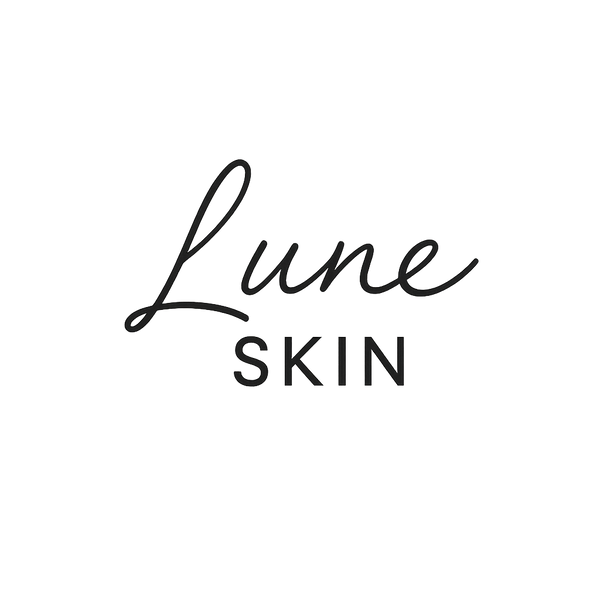
How to Choose the Right Foundation for Your Skin Type
Share
Achieving a flawless, radiant complexion starts with finding the perfect foundation. With so many formulas, finishes, and coverage levels available, navigating the foundation aisle can feel overwhelming. But fear not - with a few simple tips, you can discover the best foundation for your unique skin type and needs.
At Lune Skin, we believe that great skin begins with a great base. That's why we've put together this comprehensive guide to help you find your foundation soulmate. Whether you have dry, oily, or sensitive skin, we've got you covered. Let's dive in!
Identify Your Skin Type
Before you can select the right foundation, it's important to understand your skin type. This will help you narrow down the formulas that will work best for your complexion. Here's a quick rundown of the main skin types:
Dry Skin
If your skin feels tight, flaky, or rough, you likely have dry skin. Dry skin types tend to lack natural oils and can appear dull or uneven in texture.
Oily Skin
Oily skin is characterized by a shiny, greasy appearance, especially in the T-zone (forehead, nose, and chin). Pores may also appear larger and more visible.
Combination Skin
Combination skin is a mix of dry and oily areas, often with a dry cheeks and an oily T-zone.
Sensitive Skin
Sensitive skin is easily irritated and may react to certain ingredients or environmental factors. It can appear red, flushed, or blotchy.
Once you've identified your skin type, you can start searching for foundations that cater to your specific needs.
Consider Your Coverage Needs
Foundations come in a range of coverage levels, from sheer to full. Think about the level of coverage you prefer and what you're trying to achieve with your base makeup.
Sheer Coverage
Sheer foundations provide a light, natural-looking veil of coverage, evening out skin tone while allowing freckles or blemishes to still peek through. These are great for everyday wear or for those who prefer a more natural, "no-makeup" look.
Medium Coverage
Medium coverage foundations offer a bit more concealing power, helping to smooth out imperfections and create a more polished appearance. They're a versatile option that work well for a wide range of skin types.
Full Coverage
Full coverage foundations provide the most camouflage, completely masking blemishes, discoloration, and other skin concerns. These formulas are ideal for those looking to achieve a flawless, airbrushed finish.
Determine Your Undertone
Your skin's undertone - the subtle hue that lies beneath the surface of your skin - plays a crucial role in finding the right foundation match. There are three main undertone categories:
Cool Undertones
If your veins appear blue or purple, and you tend to burn easily in the sun, you likely have cool undertones.
Warm Undertones
Warm undertoned skin has a yellow, golden, or peachy hue. Those with warm undertones usually tan easily.
Neutral Undertones
Neutral undertones are a balance of cool and warm tones, making it a bit harder to determine. Your skin may appear more beige or olive in color.
Knowing your undertone will help you select foundations that blend seamlessly with your complexion, avoiding that dreaded "mask-like" appearance.
Consider Finish and Longevity
The finish and wear time of a foundation can also impact its suitability for your skin type. Oily skin types may prefer a matte or demi-matte finish to control shine, while dry skin often does better with a dewy or satin-like formula.
For those with active lifestyles or who live in hot, humid climates, long-wearing, sweat-resistant foundations can be a game-changer. On the other hand, if you have mature or dry skin, a more hydrating, radiant formula may be the way to go.
Test, Test, Test
Once you've narrowed down your options, it's time to put them to the test. Always try foundations on your jawline or neck, blending them down to see how they interact with your skin. This will give you a better idea of the color match, coverage, and finish.
It's also a good idea to test the foundation in natural lighting, as this will reveal any oxidation (when a foundation changes color on the skin) or unwanted undertones. Take your time and don't be afraid to try multiple shades - the perfect match is out there!
Skincare Matters
Remember, the foundation you choose is only one piece of the puzzle. Maintaining a solid skincare routine is crucial for creating a smooth, healthy canvas for your makeup. Be sure to cleanse, moisturize, and prime your skin before applying foundation for the best results.
At Lune Skin, we believe that great skin and great makeup go hand-in-hand. That's why we've formulated our high-performance skincare products to work in harmony with our luxurious foundation range. Discover your perfect match and achieve a flawless, radiant complexion today.
